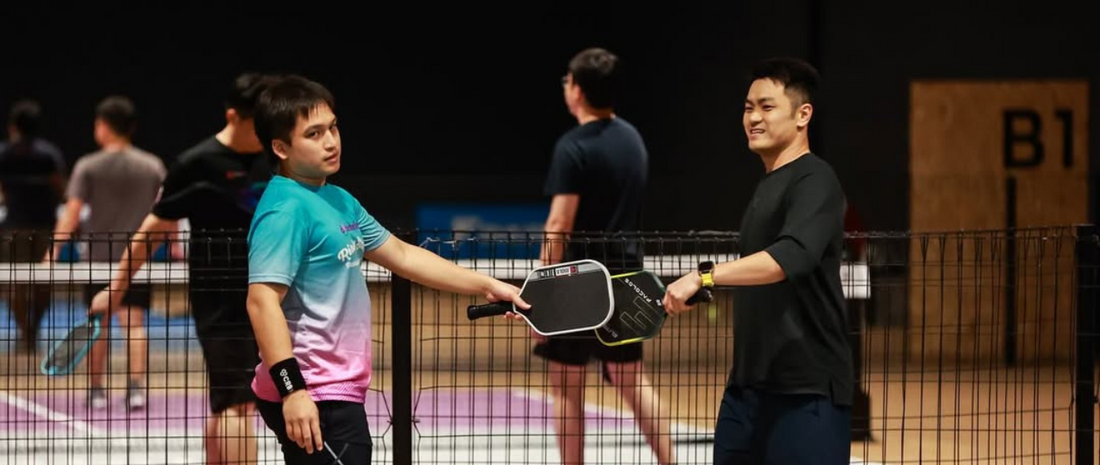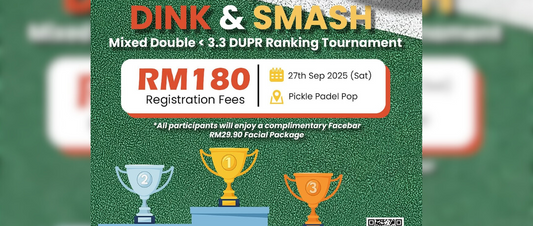
Why Playing Up Matters: The Case for Open Categories in Pickleball Development
Sureena Shree ChandrasekarIn pickleball, comfort zones can be the biggest barrier to growth. Many players prefer to stay in divisions where they feel confident, be it novice, intermediate, or even advanced because it guarantees safe rallies, predictable outcomes, and, at times, easier wins. But the truth is, real progress begins when players step up into tougher categories. This is why playing in open divisions is not just a test of courage; it is one of the most effective ways to accelerate development.
Beyond the Comfort Zone
At lower divisions, the game often revolves around short rallies, simple shot exchanges, and opponents who make frequent errors. While this can build confidence, it does little to prepare players for the precision and patience required at higher levels. In open categories, every point is earned. Rallies can last several minutes, dinks are strategically placed, and opportunities to attack are rare.
This environment forces players to adapt. They learn when to speed up, when to hold back, and how to handle pressure situations against stronger opponents. Even if the scoreboard doesn’t go their way, the experience of competing at this intensity creates lasting growth.
Building Confidence Through Challenge
For many female players in Asia playing up is not just about skill, it’s about building belief. Often, women enter mixed doubles or open categories where they face tougher, sometimes intimidating opponents. While the early stages can feel overwhelming, these matches provide the fastest route to improvement.
By holding their ground against stronger competition, players discover their own resilience. They return to lower divisions sharper, more confident, and often surprised by how much their game has elevated.

The Role of Tournament Organisers
Encouraging open-category participation requires support from organisers as well. Creating accessible open divisions, offering incentives, and highlighting success stories of players who “played up” can inspire more participants to take the leap. Balanced seeding and welcoming environments ensure that newer competitors don’t feel out of place, even if they’re not yet at the top level.
Short-Term Loss, Long-Term Gain
One of the hardest lessons for developing players is accepting losses as part of the process. In open categories, defeat is almost guaranteed in the beginning. But these losses carry value. They reveal weaknesses that need improvement, highlight the importance of patience, and showcase what’s possible when the game is played at a higher level.
Over time, these experiences build not just skill but also mental resilience. A player who has battled through an open-category match will find smaller tournaments less intimidating, and their growth curve will be steeper than those who never left their comfort zone.
Raising the Standard Across Asia
For regions like Asia, where pickleball is still maturing, encouraging players to enter open categories is vital. It creates stronger competition, raises the overall standard, and accelerates the sport’s growth. Every player who plays up brings back lessons that ripple through their local community from drilling partners to club matches.
The result? A healthier, more competitive ecosystem where players are constantly challenged, inspired, and motivated to reach new heights.

The Mindset Shift We Need
Playing up is not about chasing wins. It’s about chasing growth. It’s about accepting short-term struggle in exchange for long-term progress. And it’s about understanding that the only way to truly measure your game is to test it against the best.
For pickleball to thrive in Asia, players need to embrace this mindset. The open category is not a threat, it’s an opportunity. And those who step into it are not just developing themselves, but paving the way for a stronger, more competitive future for the sport.
This article is an excerpt from our interview with Mia Azizul.
Watch the full interview here.
Photos by @cfongraphy via Instagram.









